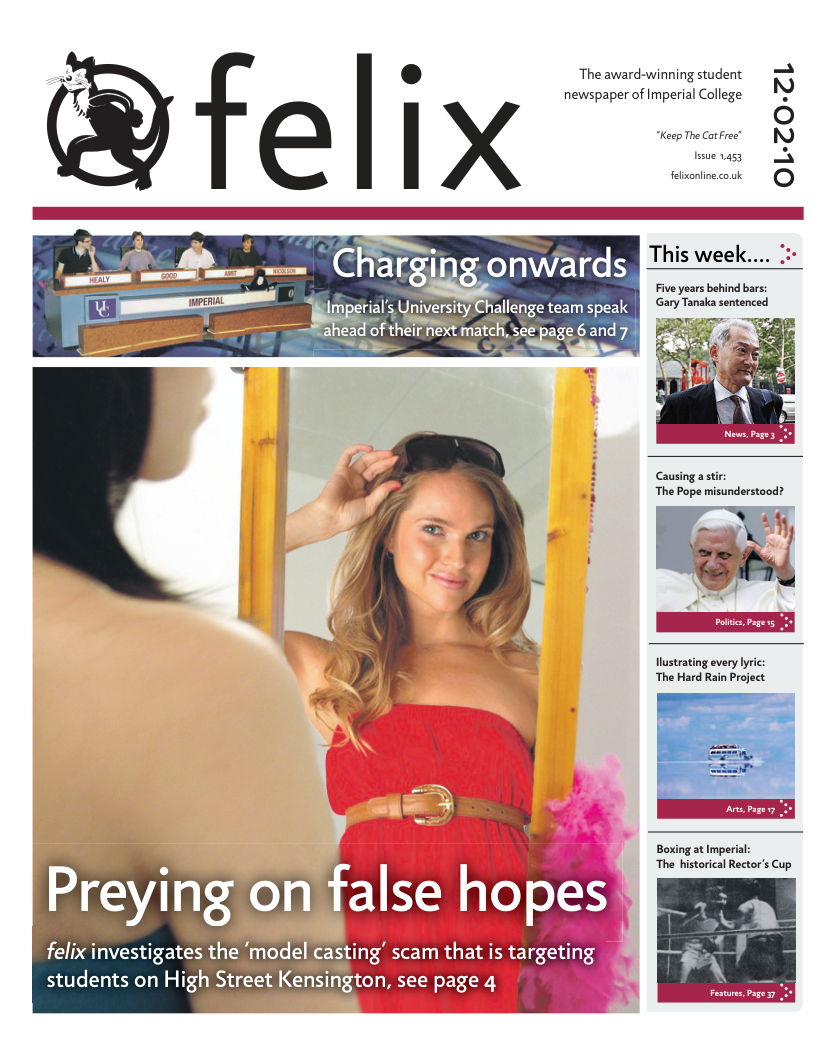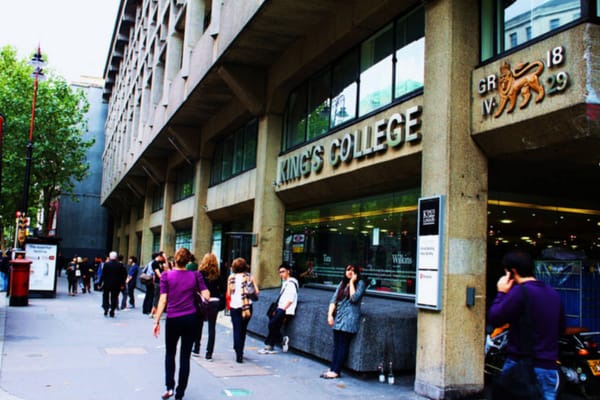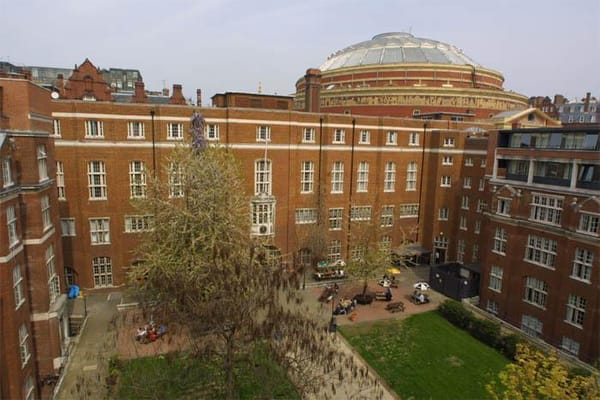Business School's Tanaka imprisoned
Sina Ataherian reports on the 5-year sentence that Imperial College benefactor Gary Tanaka faces this week

If you are in second year or above, you may remember the halcyon days when Imperial College Business School was called the Tanaka Business School. The name came from Gary Tanaka, a Japanese-American fund manager who did a PhD in Mathematics at Imperial. He pledged £27 million to the College, who thanked him by naming the new Business School in his honour. In 2004, the Queen thanked him for his generosity during the ceremony in which she opened the new Business School building.
But most of the money has yet to come. On Friday, Tanaka was sentenced alongside his business partner Alberto Vilar for defrauding investors of £13.5 million. They were both arrested in 2005, after a private detective hired by a concerned client discovered that they had attempted to clear millions of pounds of debts with their clients' investments. The prosecution alleged that the pair had stolen £3.4m from Lily Cates, a 70-year-old American heiress who had been a client for 18 years.
Edward Adams, the private detective, claimed that Vilar and Tanaka had used two-thirds of Ms Cates' fund to pay off another investor and £440,000 of the firm's bills. Another £670,000 of her money was used by Vilar to fulfil a charitable pledge to Washington and Jefferson College, and other personal expenses. The court heard how Tanaka had instructed his assistant, Maxine Rye, to cut out Ms Cates' signature from a document and tape it to a fax authorising the transfer of an extra £170,000 from her brokerage account. Tanaka was found guilty of three counts of securities fraud, conspiracy and investment adviser fraud but innocent of nine other counts. Vilar was convicted of all 12 charges.
Tanaka is the son of Japanese immigrants to America, who were interned during World War Two. He was born in a holding camp. After the family were released, his father built a poultry business that enabled Tanaka to afford to attend MIT. When he moved to London for his PhD, he claimed to have “fallen in love with swinging Beatles-era London.” He met Vilar in 1980 after a career that took him around the world, from San Francisco to the Middle East. Together they launched Amerindo Investment Advisors. The firm invested in some of the most successful firms of the dotcom boom, including Microsoft, Cisco, Amazon and eBay. At one point, they had more than £5 billion in client assets. But, after the dotcom bust, their firm's stock price dropped by 90 per cent.
The presiding judge, Richard Sullivan said, “the investment world needs to know this kind of behaviour cannot be tolerated.” The judge is called The Avenger for his crusade against allegations of fraud.
Claiming innocence, Tanaka said, “our documentation was lax and that got us into trouble. I'm sorry for what happened ... you think you're going to win the race and your horse comes in last. I was surprised at the severity of the sentence. I feel innocent in the sense that nobody lost money. We were arrested and convicted on a footnote.” He described the trial as “a storm in a teacup.”









